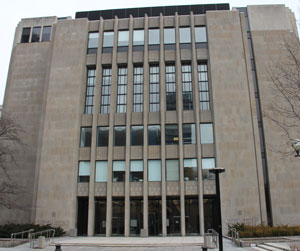An Ontario judge has dismissed a counterclaim by a Toronto lawyer against a law firm that represented him in a dispute over whether he owed a US$600,000 judgment from an Italian court.

Gregory King, who used to practise business law at Aylesworth Thompson Phelan O'Brien LLP and subsequently Gowling Lafleur Henderson LLP, claimed Lang Michener LLP had given him negligent advice in his defence of an order to pay the judgment.
Ontario Superior Court Justice David Corbett dismissed King’s counterclaim, saying that King’s allegations of negligence were “devoid of substance" and that his motion was a “collateral attack” on previous court decisions.
“I find that there are no triable issues in King’s counterclaim against Lang Michener,” Corbett wrote in the decision in
Lang Michener v. King.
The underlying judgment against King in an Italian court arose when the trustee of a bankrupt Italian company, Sincies Chiementin SpA, sued him to recover a US$600,000 deposit that apparently disappeared, according to the decision.
In the 1990s, King had worked on a transaction involving the company and others to build a new hotel in China. King was set to receive five per cent interest in the hotel, but the transaction fell apart and Sincies declared bankruptcy.
When the company sued King in Italy to recover funds for its creditors, he did not bother defending the proceedings, as he believed the Italian court did not have jurisdiction over the claims against him.
In 2006, the company’s trustee then sued King in Ontario to enforce the judgment and an Ontario judge ruled in the trustee’s favour in
Venezia/Sincies v. King.
Lang Michener represented King in those proceedings.
Ontario Superior Court Justice Larry Whalen ordered King to pay $2 million, which included the $600,000, as well as costs in both proceedings and interest.
King filed an appeal of the order to the Court of Appeal, which was dismissed.
The Supreme Court of Canada then refused to hear the case.
Lang Michener, which is now part of McMillan LLP, then sued King in 2011 for more than $70,000 in unpaid fees. King then turned around and launched his counterclaim against Lang Michener, saying the total amount billed by the firm was excessive. He also claimed that the firm had failed to address certain issues in its arguments during the proceedings, and he alleged the firm had given him negligent advice about the limitations for suing LawPRO, which had denied him coverage.
In addition, King sued two Italian lawyers who were involved in the proceedings and their firm, alleging they acted in a conflict of interest when they acted against him.
The claims against the Italian lawyers were dismissed as Corbett determined they were not within Ontario’s jurisdiction.
He also sued Gowling Lafleur Henderson LLP, his former employer and a predecessor of international firm Gowling WLG, claiming indemnity, as well as a lawyer, John O’Toole, who King says gave him negligent advice concerning the Italian proceedings.
Corbett dismissed the claim against Gowlings and threw out part of the claim against O’Toole concerning whether he had provided allegedly negligent advice to King about reporting the Italian claims to LawPRO.
The judge, however, said that the part of the claim that concerned whether O’Toole allegedly provided negligent advice about the need to defend the Italian lawsuit must go to trial.
A spokesman for Gowlings said the firm is not in a position to comment on the matter.
Lawyers say the case serves as a warning to defend lawsuits in foreign jurisdictions, as they could be enforced in Canada.
“There are always consequences with getting defaulted and in this case they turned out to be quite severe,” says lawyer Michael Lesage, who was not involved in the proceedings. Italian courts decided the underlying merits of the case without King’s participation, and everything in the subsequent litigation flowed from that, lawyers say.
“So if a foreign judgment is enforceable in Canada, you don’t get another opportunity generally speaking to re-litigate it,” says Gavin Tighe, a partner with Gardiner Roberts LLP, who represented Lang Michener on the motion.
In his analysis of the
Lang Michener decision, Corbett applied what is called the collateral attack rule.
This rule holds that if an appellant has exhausted the appeal’s process on an issue, they cannot seek to reargue the matter in a claim against their lawyer. Court orders should be “treated as final, binding and conclusive unless they are set aside or varied on appeal,” Corbett says.
“People are entitled to their day in court, of course, but generally just one day,” says Tighe. Lawyers say the case also shows that courts give deference to advocates as to how they argue cases.
Corbett found that the claim that Lang Michener had negligently advised King on potential proceedings against LawPRO could not succeed as, even if that negligence had taken place, “it caused no damage,” as King’s claims against the insurer had already expired by the time he spoke to the firm about them, and he would not have been granted coverage anyway.
“. . . [T]he allegations of negligence against Lang Michener are devoid of substance,” Corbett wrote in his decision.
King did not respond to a request for comment.

 Gregory King, who used to practise business law at Aylesworth Thompson Phelan O'Brien LLP and subsequently Gowling Lafleur Henderson LLP, claimed Lang Michener LLP had given him negligent advice in his defence of an order to pay the judgment.
Gregory King, who used to practise business law at Aylesworth Thompson Phelan O'Brien LLP and subsequently Gowling Lafleur Henderson LLP, claimed Lang Michener LLP had given him negligent advice in his defence of an order to pay the judgment.